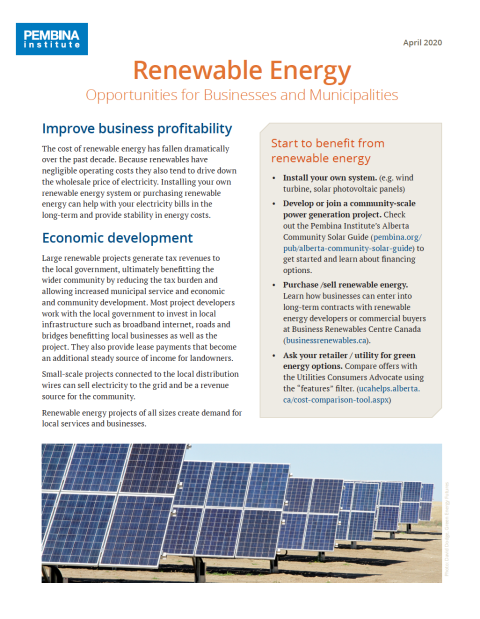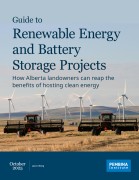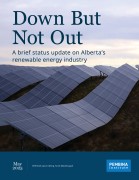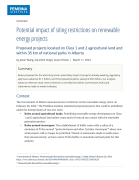The cost of renewable energy has fallen dramatically over the past decade. Because renewables have negligible operating costs they also tend to drive down the wholesale price of electricity. For municipalities and businesses alike, installing a renewable energy system or purchasing renewable energy can help with electricity bills in the long-term and provide stability in energy costs.
This short factsheet lists the renewable energy opportunities and financing possibilities for municipalities and small or medium enterprises in Alberta.
Improve business profitability
The cost of renewable energy has fallen dramatically over the past decade. Because renewables have negligible operating costs they also tend to drive down the wholesale price of electricity. Installing your own renewable energy system or purchasing renewable energy can help with your electricity bills in the long-term and provide stability in energy costs.
Start to benefit from renewable energy
Install your own system. (e.g. wind turbine, solar photovoltaic panels)
Develop or join a community-scale power generation project. Check out the Pembina Institute’s Alberta Community Solar Guide to get started and learn about financing options.
Purchase /sell renewable energy. Learn how businesses can enter into long-term contracts with renewable energy developers or commercial buyers at Business Renewables Centre Canada.
Ask your retailer / utility for green energy options. Compare offers with the Utilities Consumers Advocate using the “features” filter.
Economic development
Large renewable projects generate tax revenues to the local government, ultimately benefitting the wider community by reducing the tax burden and allowing increased municipal service and economic and community development. Most project developers work with the local government to invest in local infrastructure such as broadband internet, roads and bridges benefitting local businesses as well as the project. They also provide lease payments that become an additional steady source of income for landowners.
Small-scale projects connected to the local distribution wires can sell electricity to the grid and be a revenue source for the community.
Renewable energy projects of all sizes create demand for local services and businesses.
Business and job opportunities
Renewables attract investments into the community and also create opportunities for local businesses already existing in the community. Several different types of services and contracts benefit from renewable energy development:
Project development and construction
- Engineering and consulting services, electrical and civil work, installation, equipment rental and operation, logistics services, warehousing, site and specialty construction, manufacturing, information technology services, consulting, stakeholder engagement, site evaluation and planning.
Operation and maintenance
- Inspection, repair and maintenance services, operation, trucking, and supply of process equipment, machine tools, and cranes and rigging.
Support services
- Marketing, legal, hotels and restaurant services, financial, administration, paint, plastic pipe and fittings, fuel, human resources, training and certification, research and development, trade groups, and waste management
As the industry continues to grow there are also opportunities to create jobs and services further up the supply chain including component manufacturing.
Financing
As the cost of renewables continues to decline and interest in the technologies increases, a greater variety of financing options are available:
- Several banks, utilities, and rural electrification associations offer financing programs for renewable energy installations.
- Incentive programs may be available from different levels of government (municipal, provincial, federal) including rebates, green loan guarantees, and accelerated capital cost allowance.
- Some jurisdictions have taken additional steps to correct the regulatory system and electricity market and ensure that renewables are compensated for the full value of the services they provide to the grid and to air quality. (See New York’s Value of Distributed Energy Resources, also called Value Stack.)
- Businesses and municipalities can also aggregate their clean energy demand or small projects’ supply to enter into larger contracts that have better economic returns.
Learn about financing options with the Municipal Climate Change Action Centre’s Funding Guide.
This resource was made possible in part with the financial support of:











